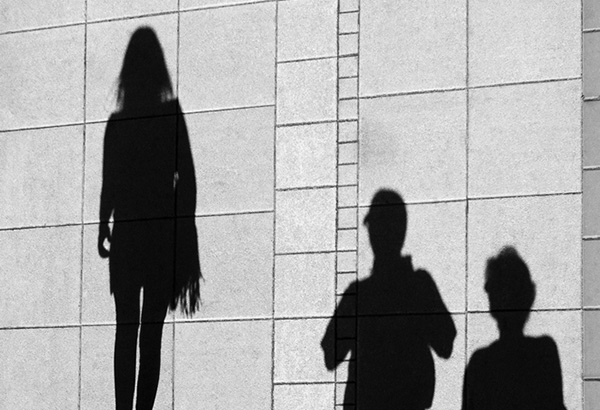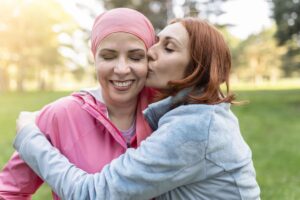As we mature, we form our identities and begin to find purpose. Many women who are mothers find our identities have been formed by the role we play in our families. As we enter our senior years, we begin to reshape who we are and who we want to be. The process can be one that is controlled by our own desires. It can also happen naturally. I have been experiencing exactly this situation.
Recently, we celebrated my daughter`s 32nd birthday. Her birth was traumatic in so many ways that each year feels like a victory. When she was born, I was 20 and a college student-athlete. My husband (then boyfriend) was pursuing his dream of owning his own pizza franchise. Christina was born three months early by cesarean section and with a chronic medical condition that gave her a 50% chance of survival. Walking was questionable. She fought for life and we fought for her to “live.” She became part of my “purpose” and part of my identity.
A Little Background
Thirty years ago, ultrasounds were not common. I was very healthy. We had no idea our daughter would be born with a birth anomaly called Cloacal Exstrophy (EC) that occurred only 1 in 250,000. Soon after her birth, I researched and could only find record of one study listing only ten living cases of EC. Thus began a lifelong process of researching and keeping up with any new findings. Psychological researchers say that’s one of the coping mechanisms for people in situations like mine. I even wrote my thesis on a topic related to cloacal exstrophy.
Cloacal exstrophy required that Christina live with a colostomy (a bag). She required several very long and complicated surgeries. She missed school and other activities. I think because I was young when I had my daughter, I had fewer fears. I have a strong personality. She was my daughter and “we” were going to be “normal.” As a result, I had no problem having her do anything and everything any child would do. She played soccer, took dance and eventually, in high school played water polo, which obviously required a tight-fitting swimsuit. I was fierce when confronted with what I thought was unfair treatment.
If I felt she needed extra time for work she missed as a result of several long hospitalizations, I told her teachers and thought nothing of it. In high school, at an awards ceremony for water polo and many athletes were getting awards for certain achievements. When Christina didn’t get an award, I just about came undone. I wanted to tell her coach that besides her exemplary performance in water polo, she’d beaten the odds simply by joining the team. Instead of confronting the coach, on the way to the car I told Christina someone else must have needed an award more than she did.
Although I’d made a huge effort to make sure her chronic medical condition didn’t define her, it did in some ways define me. I might have been considered the modern-day helicopter parent. I was the primary caretaker at home and her primary advocate with the medical community. I made it my goal to know as much as I could about her condition. And more importantly, how it affected her. It truly was part of who I became – her mother AND the expert on her condition.
I did not realize this identity of mine was being formed. I did not consider how I had embraced the role of expert caretaker, or how important that role became as she grew up. I knew I felt the same as others whose children were becoming adults and leaving the nest. I was ready for less responsibility. I was ready for a little freedom from her adolescent complexities and dramas. I had three young children at home still. I was not ready to risk her health by maintaining my management role from afar.
However, despite my intentions, I found I had to maintain that role, because she didn’t want to take responsibility for her health. She relied on me. She did have her own insurance and managed her supplies, but she understandably wanted to “forget” she had special circumstances. She had to be reminded to go to annual doctor’s appointments, to keep certain medical devices with her and to pay close attention to what she ate and drank because she developed a latex allergy and certain foods cause dangerous bowel blockages. I frequently reminded her, sometimes in exasperation, to make appointments, replace her medical alert bracelet and carry her epipen.
Role Change
It wasn’t until Christina was married for a year and had several medical emergencies that I realized it was time to really share the responsibility of her medical care. Her husband, Kirk, is kind and considerate and more than willing to take on the role of primary care taker, if necessary. At this point, she was 30 years old and fully capable of creating her own health plan including creating a network of medical personnel who could help her find experts necessary for her care. Consequently, during one of her emergencies, I started telling her husband everything I knew. It felt like a release of a long-held breath.
There was a sobering point in the hospital when a doctor came in and I noticed an obvious disregard for my thoughts or opinions. I was no longer expected to be the expert. It was different than when she was a child. I had become just another person in the room. Her husband was the one they looked to if Christina was unable to communicate her needs, thoughts or other information.
It was also at this point when I started to recognize my mortality. It dawned on me that someone else needed to know as much about Christina’s medical needs as I did. I began communicating to Kirk, Christina’s husband, everything I could. I wrote things down, but I also just talked. I explained everything – from details of what she’d been through to what to expect, how to respond, and ways to get the help they`d need. I also talked about how it felt being the caretaker. I thought it was important for him to know, but I also think it was a healing process for me. I was letting go of being my daughter’s caretaker, and at the same time, she was letting go of me.
Letting go is difficult enough in general. It’s really difficult when you have been in a situation where you feel you are a crucial part of maintaining another person’s well-being. It is even more difficult when what you are letting go of defines who you are.
A Bright Future
There has been a shift in our family. It was perplexing when I realized that after all my efforts to make certain my daughter’s chronic medical condition did not define her, I’d somehow let it define me. I’m sure there were plenty of people who knew this and fortunately they were considerate rather than condemning. Now our roles are better determined.
Christina has, with the help of her husband, formed a good network of medical professionals. They’ve even had dinner with one of the experts in the field of Cloacal Exstrophy. Between the two of them they have a plan A and plan B. They have also begun the process of adopting a child.
My daughter and I have transitioned to a different relationship. I even felt comfortable enough to travel out of the country for an extended period of time last year. This arrangement seems better for all of us and I don’t feel a loss of identity. In fact, I feel a little more complete.







